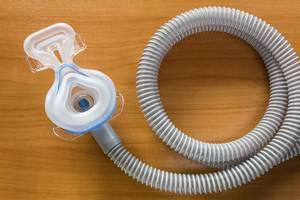Can Defective CPAP Machines Lead to Throat or Esophageal Cancer?
 Many people use continuous positive airway pressure (CPAP) devices to treat sleep apnea or similar conditions. CPAP machines provide a steady stream of air that keep a person’s airways open, ensuring that they do not stop breathing while they are sleeping. These devices can provide numerous benefits, including helping people avoid the risks of heart conditions, ensuring that they get enough rest while sleeping, and improving their overall health.
Many people use continuous positive airway pressure (CPAP) devices to treat sleep apnea or similar conditions. CPAP machines provide a steady stream of air that keep a person’s airways open, ensuring that they do not stop breathing while they are sleeping. These devices can provide numerous benefits, including helping people avoid the risks of heart conditions, ensuring that they get enough rest while sleeping, and improving their overall health.
Unfortunately, a large number of CPAP users have learned that the products that were meant to benefit them may have put them at risk of injury. A massive recall of CPAP machines is currently being performed by Philips Respironics. The recalled devices contained a type of foam composed of polyester-based polyurethane, and the breakdown of this foam over time may have led foam particles and hazardous chemicals to be inhaled by users. These substances have been associated with multiple forms of cancer, including throat cancer and esophageal cancer.
Throat Cancer Symptoms and Treatment
Cancers of the throat may affect the windpipe, the voice box and vocal cords, the pharynx (the passage connecting the back of the nose to the beginning of the windpipe), the tonsils, or other parts of the head and neck. Tumors may form in the cells lining the throat, and they can result in symptoms such as difficulty swallowing, sore throat, persistent coughing, swollen lymph nodes in the neck, hoarseness when speaking, pain in the ears, weight loss, and wheezing or other breathing problems.
Multiple forms of treatment may be available depending on how far cancer has spread and whether it has affected other bodily systems. Surgeries such as laryngectomy (removal of some or all of the voice box), cordectomy (removal of part or all of the vocal cords), or pharyngectomy (removal of a portion of the throat) may be performed. Other types of treatment may include chemotherapy or radiation therapy used to kill cancer cells, targeted therapy to inhibit the growth of tumors, or immunotherapy to help the body’s immune system fight cancer.
Esophageal Cancer Symptoms and Treatment
Cancer of the esophagus may affect any part of the passage between the throat and the stomach, and it may occur due to the swallowing of foam particles. Tumors may form in the cells lining the inside of the esophagus, and they may block the passage of food that is swallowed. Cancer may also affect the glandular cells that produce fluids and mucus, and it may spread to surrounding tissues and organs in the chest and abdomen. Symptoms of esophageal cancer include difficulty swallowing, indigestion, weight loss, pain in the chest under the sternum, hoarseness, and coughing.
Esophageal cancer may be treated through surgery in which a portion of the esophagus is removed. Stents or other implants may be used to keep the esophagus open and ensure that a person can swallow food. Chemotherapy, radiation therapy, laser therapy, or immunotherapy may also be used to kill or stop the growth of cancer cells.
Contact Our CPAP Cancer Injury Attorneys
If you are a CPAP user who is experiencing any symptoms of throat or esophageal cancer, you will need to make sure you receive the proper medical treatment, and you may also be able to pursue compensation from the manufacturer of a device that contained dangerous materials. Our CPAP injury lawyers can help you understand your legal options, and we will work with you to make sure you will be able to receive financial compensation for the harm you and your family have suffered. Call 844-847-2727 today to arrange a free consultation.
Sources:
https://www.fda.gov/medical-devices/safety-communications/update-certain-philips-respironics-ventilators-bipap-machines-and-cpap-machines-recalled-due#risk
https://www.healthline.com/health/cancer-throat-or-larynx
https://www.cancer.gov/types/esophageal/patient/esophageal-treatment-pdq
 20 N Clark Street, Suite 3300, Chicago, IL 60602
20 N Clark Street, Suite 3300, Chicago, IL 60602


